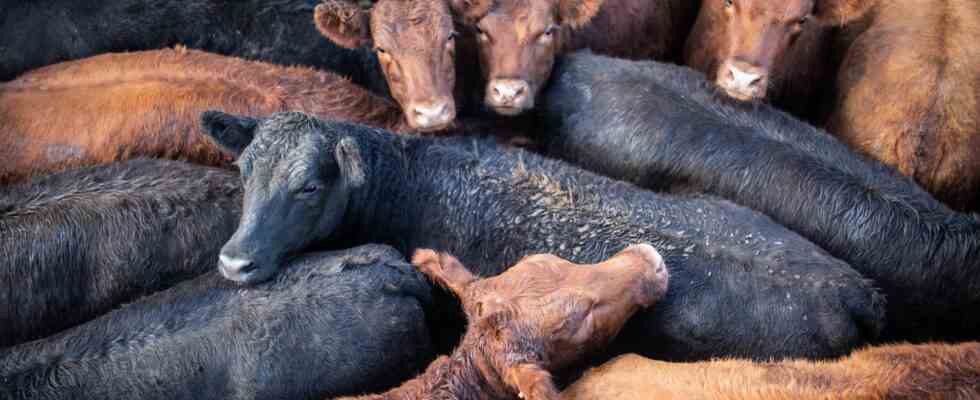Status: 14.11.2022 10:45 a.m
In Uruguay there are three times as many cattle as people. Breeding is an important branch of the economy. Now the country wants to position itself as a climate-friendly meat supplier. Critics are skeptical.
The visit does not impress the cattle at all. Without batting an eyelid, they continue to graze as farmer Sebastian Olaso makes his way through the herd. Black Angus calves, the best grazing cattle, lush green meadows all around and an endless blue sky: welcome to the flagship farm Rincón del Sauce in southern Uruguay.
“If we produce a kilo of meat from the birth of the calf through rearing and fattening to delivery, then we bind at least as many greenhouse gases as we emit,” says Olaso. “Everything takes place here in a closed cycle. It took us two and a half years to document that and have it certified.”
Cattle breeders under criticism
Olaso proudly describes itself as the first farmer whose beef bears the “CO2 neutral” seal. There is no secret behind this, but species-appropriate husbandry, change of pasture and large areas. To do this, he reforests around 15 hectares a year, according to Olaso. Every single element in the production process – soil conditions, forests, animal husbandry – was registered and then measured how much emissions it releases and binds. The whole thing was certified by LSQA, a Uruguayan-Austrian joint venture.
In December 2021, the first delivery of its premium beef went to Switzerland, and this year Olaso wants to export 60 tons. “We cattle breeders are always the bad guys in history because of the greenhouse emissions. But we produce meat here that is absolutely environmentally friendly,” says the farmer.
Is there a lack of transparency?
However, Wijnand Stoefs from the climate protection organization Carbon Watch Market is more than skeptical: Cattle breeding will remain a “climate killer,” he says. In the agricultural country of Uruguay, 70 percent of greenhouse gases are produced in agriculture and forestry – primarily methane, most of which comes from animal husbandry.
“I don’t think there is a concept of carbon neutral meat,” Stoefs said. “All meat production causes emissions – some more, some less.” It is a different matter whether the Amazon rainforest is felled for cattle breeding or – as in the case of Olaso’s breeding – cattle stand on natural pastureland. “But in our eyes, such labels are still greenwashing.”
Above all, Stoef criticizes the lack of transparency: It is by no means clear which parameters are used to offset various greenhouse gases such as methane and CO2. In addition, the label only refers to the production – not including the slaughter or the later transport by plane to the customer in Europe. This creates a wrong image.
Much pride in domestic breeding
The certification does not claim that at all, says Fabio Montossi. The agricultural economist works at Uruguay’s national institute for agricultural research INAI. He is proud of the cattle breeding in his country: 60 percent of the area is natural pasture land, the traceability of the animals is guaranteed and hormones and antibiotics are prohibited. The INAI is now working on a larger project that aims to further reduce emissions from Uruguay’s livestock industry.
“We are small but competitive: not only because of the volume of our exports but also because we focus on quality,” says Montossi. “And that also includes ethics, animal welfare and environmental compatibility.” The labels have gotten better. “We know how important trust is in this market. Making the sector more climate-friendly is also an economic and social imperative for Uruguay.”
Twelve million cattle come to almost four million people who live in an area that is only half the size of Germany. Food is the main export branch. As the second most important trading partner in the EU, Germany plays a key role. The country is now trying to position itself as a climate-friendly meat producer – a lot depends on this for the agricultural country.
CO2 neutral meat in Uruguay – revolution or greenwashing?
Anne Herrberg, ARD Rio de Janeiro, 11/11/2022 12:14 p.m

